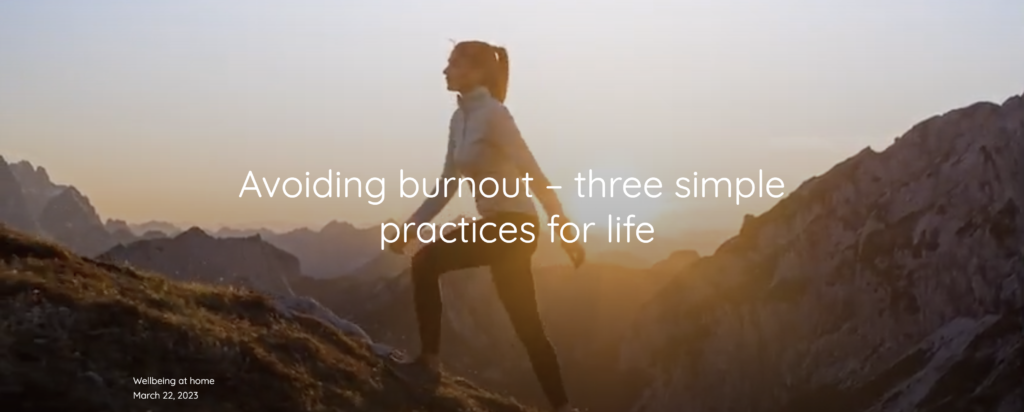How to start living a mindful life
In today’s fast-paced world, it can be challenging to live a mindful life. The constant barrage of notifications, distractions, and pressures can cause our thoughts to race from one work-related task to the grocery shopping list, and our minds to become cluttered.
However, practicing mindfulness can help us calm our “monkey mind”, as Buddhists call it, bring us into the present moment, and increase our self-awareness and consciousness, writes Eda Gungor, Co-Founder of Seva Experience.
But how can we start living a more mindful life when we already don’t have the time to squeeze any extra activity into our overbooked agendas? Here are a few steps we can easily incorporate into our routine:
Slow Down
The first step in starting a mindful life is to make a conscious decision to live in the present moment. We all have the tendency to get lost in our thoughts, worries, and fears about the future or the past, and it’s only by focusing on the present moment that we can avoid those negative thought patterns and feel more grounded and centered.
To start living mindfully, it’s important to slow down. This might seem like a difficult concept to grasp, especially if you’re used to living life at a fast pace, but it’s essential to establish the foundation of your mindfulness practice. Slowing down allows you to pay attention to your thoughts, emotions, and surroundings, giving you the opportunity to observe your experiences without judgment.
When performing a task, focus on it completely. For example, when cooking, instead of peeling potatoes while letting your mind wander to other responsibilities, or daydreaming about this blue-eyed stranger who smiled at you in the metro, bring your attention back to the kitchen and focus on the action of peeling the potato. After a couple of minutes, shift your focus to yourself. Scan your body: how are you feeling right now? Do you have any sore muscles bothering you? How about your breath? Are you breathing through your nose or your mouth? Is your breath shallow or deep? They are no rights or wrongs. Just observe without judgment your current physical condition, paying special attention to your breath.
After a few minutes of observation, you might notice changes in the pace of your work and your breathing. You may begin to feel more relaxed and centered, allowing you to fully engage in the task at hand.

Get the journaling habit
To start a regular journaling practice, take a few minutes each evening to reflect on your thoughts and feelings. Find a nice notebook or journal and sit down in a quiet space to write about anything interesting that happened during your day. As you write, be sure to note how you felt during those moments and how you feel in the present. Consider how these events have influenced your emotions and how they may have impacted your self-worth or ego.
It’s important to remember that the emotions you experience in any given situation do not define who you are. By writing them down, you can free up space in your mind and gain a different perspective on your feelings. This can help you to accept them without judgment and move forward with greater clarity and understanding.
Whether you write for 2 or 20 minutes or jot down 3 or 30 sentences, the key is to maintain consistency in your journaling practice. Make it a habit and commit to writing each day. Over time, you may find that your journal becomes a powerful tool for self-reflection and personal growth, helping you to cultivate greater mindfulness and self-awareness in your daily life.

Cultivate kindness and gratitude
Finally, be kind and compassionate towards yourself. If you start beating yourself up for not being fully present in the moment, try to shift your mindset. Remember that life is a journey, and the path toward mindfulness is not a straight line. Give yourself credit for taking the first steps towards a conscious life, and recognize that progress takes time. Focus on taking baby steps, one day at a time, and eventually, you will find yourself living in the present moment.
And practice gratitude each day. Taking a few moments to reflect on the things in your life that you are grateful for can bring more happiness and peace into your daily routine. One approach to do it is to set aside time when you wake up, and before you go to sleep, to list three things you are thankful for. You can choose to do this exercise mentally, or write it down in your journal. By consistently acknowledging and appreciating the positive aspects of your life, you can cultivate a more positive and mindful outlook.
It is clear that mindfulness is a simple yet incredibly powerful concept. By focusing our attention on the present moment and our internal experiences, we can gain a deeper understanding of ourselves, cultivate a greater sense of calmness and clarity, reduce stress and anxiety, and improve our emotional regulation.
As we become more self-aware, we may even discover new aspects of ourselves and find a greater sense of purpose in our lives, ultimately leading to increased emotional intelligence and greater personal growth and fulfillment.
